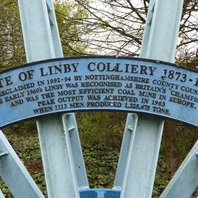
Viking Names
Linby
Linby, in the Broxtow Wapentake of Nottinghamshire, comes from Old Norse lind ‘a lime tree’ and by ‘a farmstead, a village’.
Read More
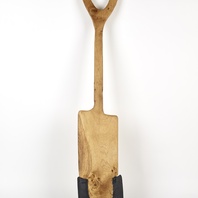
Viking Objects
Reproduction Spade
Spades would have had metal shoes to aid with cutting the ground when digging.
Read More

Item
Haverholme
Haverholme, in Kesteven, Lincolnshire, comes from Old Norse hafri ‘oats’ and Old Norse holmr ‘an island, an inland promontory, raised ground in marsh, a river-meadow’. In 1137 the site was given by Alexander, Bishop of Lincoln, to the Cistercians of Fountains Abbey who later left Haverholme for Louth Park and the manor was passed to the Gilbertines in 1139.
Read More
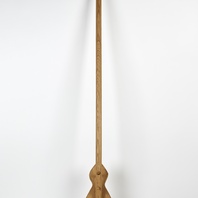
Viking Objects
Reproduction Shovel
A reproduction wooden shovel based on fragments found at York.
Read More
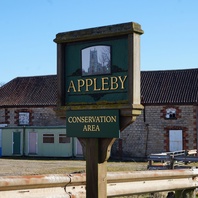
Viking Names
Appleby
Appleby, in the Manley Wapentake of Lincolnshire, is a hybrid name coming from Anglian æppel ‘an apple; fruit, tree-fruit; an apple-tree’ and Old Norse by ‘a farmstead, a village’. It is likely, from the situation of the village that this was formerly Appleton, in which the second element, originally Old English tun ‘a farmstead, village, estate’, was later replaced by by.
Read More
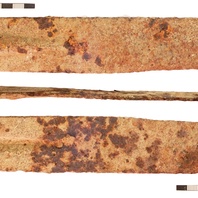
Viking Objects
Scythe (NLM-739C96)
Scythes such as this one would have been common agricultural implements. Dr Kevin Leahy comments that while the scythe has a similar shape to other early medieval examples, the lack of a typical bent tang leaves its dating in question.
Read More
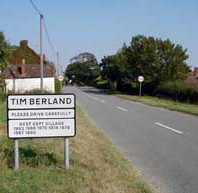
Viking Names
Timberland
Timberland, in the Langoe Wapentake of Lincolnshire, is likely an Anglo-Scandinavian hybrid coming from Old English timber ‘timber, trees; a wooden building’ and Old Norse lundr ‘a small wood’, thus giving the place-name the meaning ‘the grove where timber is obtained’. Alternatively, the first element may be Old Norse timbr ‘timber, trees, wood’.
Read More
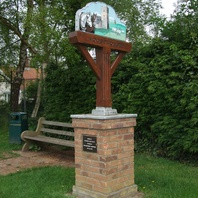
Viking Names
Hogsthorpe
Hogsthorpe, in the South Riding of Lindsey in Lincolnshire, is a hybrid name. The first element of the place-name is either Old English hogg ‘a hog, a pig’ or the Old English male personal name Hogg. The second element is Old Norse þorp ‘a secondary settlement, a dependent outlying farmstead or hamlet’.
Read More

Viking Names
Riby
Riby, in the Yarborough Wapentake of Lincolnshire, was originally an Old English compound Rygetun ‘the farmstead or village where rye grows’. The Old English tun ‘farm, settlement’ was replaced by Old Norse by ‘farm, settlement’.
Read More
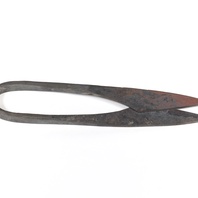
Viking Objects
Reproduction Shears
Shears were a common agricultural implement generally used to cut the wool off sheep but could also have been used as scissors in textile production. These are based on a number of originals uncovered during the excavations at Flixborough, Lincolnshire.
Read More

Viking Names
Sookholme
Sookholme, in the Bassetlaw Wapentake of Nottinghamshire, lies in a river valley and the etymology of the name reflects its location. The first element is Old English sulh ‘a plough; a ploughland (i.e. the amount of land which can be cultivated with one plough)’ which is combined with the second element, Old Norse holmr ‘an island, an inland promontory, raised ground in marsh, a river-meadow’. Thus it is a hybrid name with the probable meaning of ‘gully island’.
